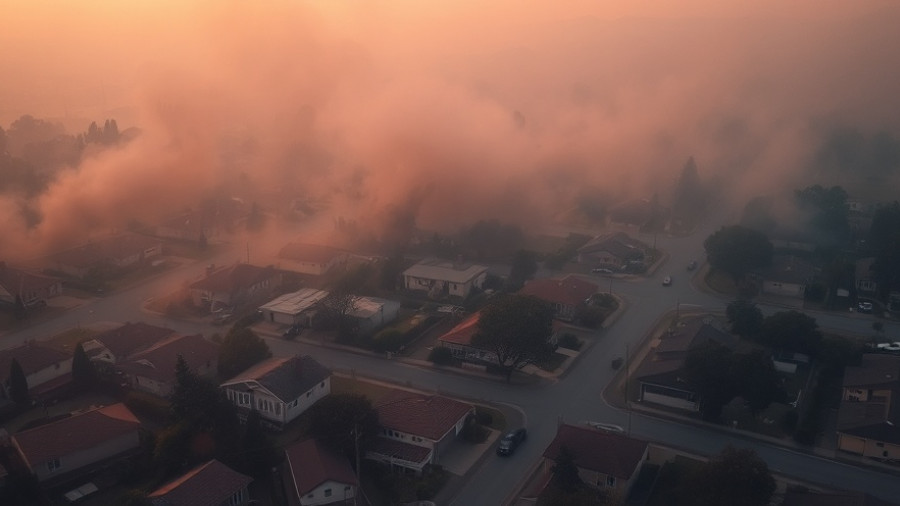
Understanding The Importance of Smoke, Soot, and Ash Damage Coverage
As wildfires continue to wreak havoc across the United States, Colorado's recent regulatory reminder for insurance companies about smoke, soot, and ash damage coverage should serve as a wake-up call for homeowners in South Carolina and beyond. Colorado's Division of Insurance explicitly stated that insurers cannot limit coverage for damage caused by these factors, which are often direct results of wildfires. This directive is crucial, especially as homeowners face increased risks of fire-related damages.
How Insurers Have Eroded Coverage
Insurers have been quietly introducing sublimits and exclusions, threatening the very protections homeowners expect from their policies. For South Carolinians, knowledge of these tactics is vital. The insurance industry has a troubling history of employing 'adjuster tricks' to deny claims or minimize payouts by classifying damages under vague terms that mislead policyholders regarding the extent of their coverage. Understanding that smoke and soot damage can render a home uninhabitable — something with significant implications for health and safety — is key for any homeowner navigating this landscape.
Insurance Industry Trends You Should Know
The mechanisms insurers use to avoid paying rightful claims are always evolving. Notably, many companies are testing what they can get away with. Recent trends include the addition of smoke sublimits or vague language framing exclusions. Without a substantive response from regulators, such practices could easily spread nationwide, potentially affecting South Carolina residents. Recognizing these trends helps homeowners advocate for their rights and ensures they don’t fall victim to unfair insurance practices.
Case Studies: What Can Go Wrong?
Consider several instances where homeowners faced insurance claim denials under dubious circumstances. One individual found their claim for soot damage from a nearby wildfire denied, despite irrefutable testing showing contamination. The insurer claimed the damage was under a newly added sublimit, leaving the homeowner to absorb financial loss. Similar stories multiply across states, highlighting the importance of vigilance in understanding one’s insurance policy. Knowing how to fight a denied claim with correct documentation and legal knowledge can make all the difference.
How to Protect Your Insurance Rights
Facing potential insurance claim issues requires a proactive approach. Here are steps you can take:
- Read Your Policy Thoroughly: Understand exactly what is covered in your home insurance.
- Document Everything: Keep records of any damages and communications with your insurer.
- Seek Professional Guidance: Consult with an experienced public adjuster or consumer advocacy group if your claim is delayed or denied.
Conclusion: Take Action Now
The Colorado Division of Insurance's firm stance should encourage homeowners from South Carolina to reassess their insurance coverage concerning smoke, soot, and ash damages. Don’t wait until you face a claim denial — educate yourself about your policy, the tactics insurers might use, and how to fight back. The safety and fairness of your coverage rely on being informed and prepared. This knowledge empowers you not only to protect your home but to ensure you’re not taken advantage of by the system.
 Add Row
Add Row  Add
Add 




Write A Comment